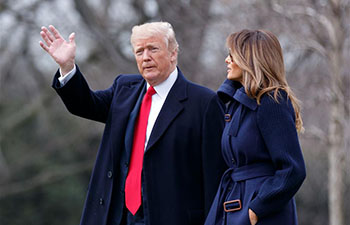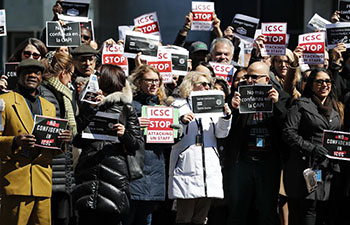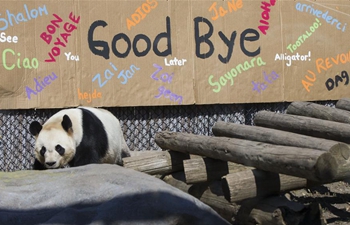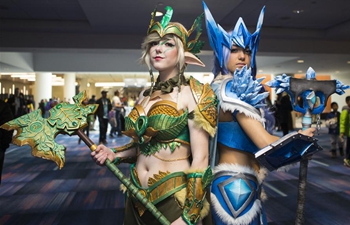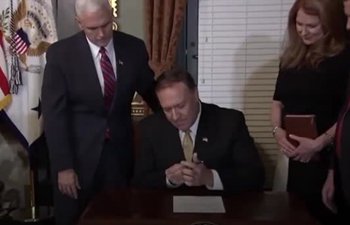WASHINGTON, March 20 (Xinhua) -- U.S. President Donald Trump touted multi-billion-U.S.-dollar defense sales to Saudi Arabia on Tuesday in a meeting with the kingdom's Crown Prince, Mohammed bin Salman, at the White House.
It was the prince's first trip to Washington since he became heir apparent to the Saudi throne last year.
During the meeting, the two sides acknowledged the strong bilateral ties between their countries, with Trump expressing support for Salman, whose sweeping anti-corruption campaign in November affected many of his royal siblings.
Trump also displayed posters showing Saudi purchases of U.S. military equipment, including ships, planes and combat vehicles.
"Saudi Arabia is a very wealthy nation and they're going to give the United States some of that wealth, hopefully, in the form of jobs, in the form of the purchase of the finest military equipment anywhere in the world," Trump told reporters before the meeting.
One of the posters showed eight purchases the Saudis have finalized, with a total worth of 12.5 billion dollars.
As regards Saudi investments in the United States, the Crown Prince, 32, said: "From day one we planned to tackle 200 billion U.S. dollars in the next four years but ended up with 400 billion U.S. dollars," adding that the investments will directly or indirectly result in about 40,000 American jobs.
A senior Trump administration official told media that the two leaders also talked about nuclear cooperation as well as the humanitarian situation in Yemen, where a Saudi-led military operation was blamed by the United Nations. According to the official, the civilian casualties in Yemen "did not come up in a major way" during the talks.
Also on Tuesday, U.S. lawmakers rejected an effort to push Trump to end the U.S. military's support for Saudi Arabia in the war in Yemen.
With a 55-44 vote, senators effectively blocked a resolution requesting Trump to withdraw any troops in or affecting Yemen within 30 days unless they are fighting the al-Qaeda terrorist group.
Salman was expected to stay in the United States for more than two weeks, with planned stops in Washington, New York, Boston, Seattle, the Silicon Valley, Los Angeles and Houston.
His agenda in the United States will mainly focus on attracting technology and investments for his ambitious domestic reforms aimed at easing restrictions for women, combating religious extremism and promoting a more liberal society.







